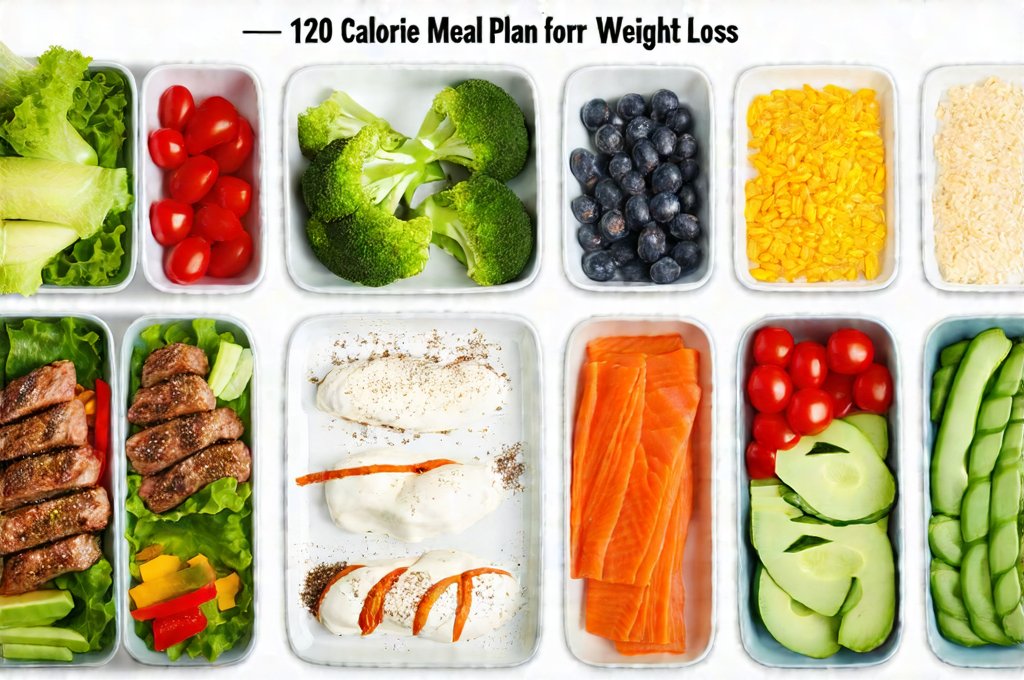Introduction
Embarking on a weight loss journey requires a thoughtful approach, one that prioritizes sustainable habits over quick fixes. Many find success with carefully planned meal plans, as they remove guesswork and help ensure nutritional needs are met while creating a calorie deficit. A 1200-calorie plan can be an effective starting point for some individuals looking to lose weight, but it’s crucial to understand its nuances and whether it’s appropriate for your individual circumstances. This isn’t about deprivation; it’s about intentional eating, focusing on nutrient-dense foods that keep you satisfied and energized throughout the day. Remember, consistency is key, and a well-structured plan significantly increases your chances of achieving long-term results.
It’s important to preface this discussion with a note of caution: 1200 calories is a relatively low intake and isn’t suitable for everyone. Individuals who are very active, have certain medical conditions, or are pregnant or breastfeeding should not follow such a restrictive plan without the guidance of a healthcare professional or registered dietitian. This meal plan serves as an example and starting point, but personalization based on your individual needs and activity level is paramount. The goal isn’t simply to restrict calories, but to cultivate healthy eating patterns that you can maintain for life. Before making significant changes to your diet, consult with a doctor to ensure it aligns with your overall health status.
Understanding the 1200-Calorie Approach
A 1200-calorie meal plan is designed to create a calorie deficit – meaning you consume fewer calories than your body burns. This forces your body to tap into stored fat for energy, leading to weight loss. However, it’s important to note that the effectiveness of this approach depends on several factors including metabolism, activity level, and overall health. For some individuals, 1200 calories might be sufficient for basic metabolic functions and minimal activity, creating a significant deficit. For others, especially those with higher muscle mass or more active lifestyles, it may not be enough to sustain energy levels or maintain proper bodily function.
The focus within this calorie range shifts dramatically towards food quality. Because your caloric intake is limited, every bite counts. Empty calories from processed foods, sugary drinks, and excessive fats offer little nutritional value and can leave you feeling hungry and unsatisfied. Instead, the emphasis should be on whole, unprocessed foods that are rich in nutrients. This includes lean proteins, complex carbohydrates, healthy fats, fruits, and vegetables. Prioritizing these foods not only supports weight loss but also provides your body with essential vitamins, minerals, and antioxidants.
Successfully navigating a 1200-calorie plan requires careful planning and tracking. Using food scales and calorie-tracking apps can be immensely helpful in ensuring you stay within the target range. It’s also vital to pay attention to portion sizes – even healthy foods can contribute to excess calories if consumed in large quantities. The aim is not deprivation, but rather mindful eating and making informed choices that support your weight loss goals while prioritizing your health and well-being.
Sample Meal Plan Structure
A typical 1200-calorie meal plan might break down as follows:
- Breakfast (approximately 300 calories): Oatmeal with berries and a small handful of nuts, or Greek yogurt with fruit and granola.
- Lunch (approximately 350 calories): A large salad with grilled chicken or fish, and a light vinaigrette dressing; or a turkey sandwich on whole-wheat bread with vegetables.
- Dinner (approximately 400 calories): Baked salmon with roasted vegetables and quinoa; or lentil soup with a side of whole-grain bread.
- Snacks (approximately 150 calories total – split into one or two snacks): An apple with peanut butter, a small handful of almonds, or carrot sticks with hummus.
This is just an example, of course, and the specific foods can be adjusted based on your preferences and dietary needs. The key is to ensure that each meal includes a balance of protein, carbohydrates, and healthy fats.
Hydration & Fiber Intake
Staying adequately hydrated is crucial when following any calorie-restricted diet. Water helps you feel fuller for longer, preventing overeating, and supports overall bodily functions. Aim for at least eight glasses of water per day. Beyond water, unsweetened herbal teas can also contribute to your fluid intake. Be mindful of sugary beverages like soda or juice, as these add empty calories without providing any nutritional benefit.
Fiber is another essential component of a successful 1200-calorie plan. Fiber-rich foods, such as fruits, vegetables, whole grains, and legumes, promote satiety, aid digestion, and help regulate blood sugar levels. Including fiber in each meal can significantly reduce cravings and prevent overeating. Consider these tips:
– Choose whole grain bread over white bread.
– Add beans or lentils to soups and salads.
– Snack on fruits and vegetables instead of processed snacks.
Adapting the Plan for Sustainability
The biggest challenge with any diet is long-term adherence. A 1200-calorie plan, due to its restrictiveness, can be particularly difficult to maintain over extended periods. To increase your chances of success, focus on making gradual adjustments and incorporating lifestyle changes that you enjoy. Don’t view it as a temporary fix but rather as a stepping stone towards healthier habits.
Consider these strategies:
1. Flexibility: Allow yourself occasional treats or deviations from the plan, without feeling guilty. Rigid restriction often leads to binge eating.
2. Mindful Eating: Pay attention to your hunger and fullness cues, and eat slowly.
3. Exercise Integration: Combine your meal plan with regular physical activity for optimal results. Exercise not only burns calories but also improves mood and overall health.
4. Professional Guidance: Work with a registered dietitian or healthcare professional to personalize the plan based on your individual needs and preferences. They can provide support, accountability, and ensure you’re meeting your nutritional requirements.
Ultimately, sustainable weight loss is about creating a healthy lifestyle that you can maintain for years to come. The 1200-calorie meal plan can be a useful tool, but it should be approached with caution, mindful planning, and a long-term perspective.




